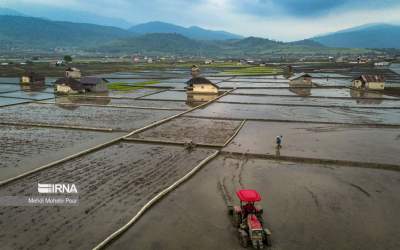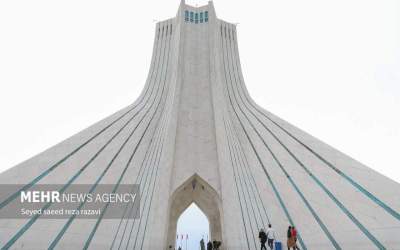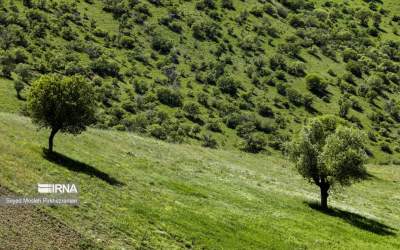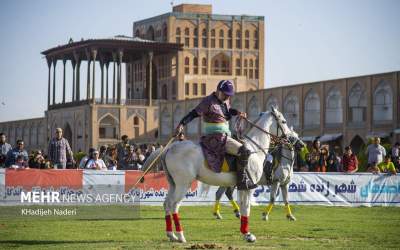 As Iran and the world powers prepare for the next round of talks in Kazakhstan on April 5-6, their focus should be on what is politically�and logistically achievable at this stage � clear steps that will help address the immediate concerns of both sides.
As Iran and the world powers prepare for the next round of talks in Kazakhstan on April 5-6, their focus should be on what is politically�and logistically achievable at this stage � clear steps that will help address the immediate concerns of both sides.�Something changed in the nuclear talks between�Iran�and world powers last month in�Almaty,Kazakhstan. For the first time, the two sides negotiated in earnest.
Gone were the preconditions and meandering lectures of the past. Instead of maximalist upfront demands in return for nebulous future rewards, the envoys discussed explicit quid-pro-quo options. Both sidesdescribed�the meetings with adjectives ranging from �useful� to �pivotal�.
Yet the follow-up 13.5-hour meeting in�Istanbul�between the parties� arms control officials revealed that a great gulf remains in expectations. It was a�sobering reminder�that the diplomatic process is as fragile as the prospect of an agreement is elusive. Misperception and brinkmanship might yet make this opening another instance of what historian G.M. Tevelyan called �the turning point at which history fails to turn.�
As negotiators prepare for the next meeting in Kazakhstan on April 5-6, their focus should be on what is politically as well as logistically achievable at this stage.
The main challenge is that each side doubts the other�s commitment to diplomacy.�Washington�and the Europeans are skeptical that Iran could compromise before its presidential election in June.�Tehran, in turn, fears a process in which its concessions are reciprocated by at best partial, reversible, or even symbolic reprieve from sanctions. But both sides� doubts are based on faulty assumptions.
For one, key decisions In Iran still rest with the country�s supreme leader,�Ayatollah Khamenei, not with whomever inherits the presidential mantle. And while from Tehran�s perspective, no deal is better than a bad deal � particularly during an electoral season � a good deal is better than none.
An accord that could reassure Iranian markets � as the�prospects of a deal�did after the Almaty meeting � could only help facilitate transition to the post-Ahmadinejad era. Iran�s agreement to hold these nuclear talks before the elections, notwithstanding the Persian New Year holidays, is a testament to its openness to a deal.
And the talks have already shown progress, however modest. The new P5+1 proposal reportedly reframed the nuclear concessions that would be expected from Iran, and offered, among other things, to�relax restrictions�on gold trading and the sale of petrochemical products.
Tehran should recognize that the offer counters its fears that sanctions are immutable. But it should also temper its expectations: Given the high level of mistrust and the legal hurdles embedded in the sanctions regime, a more generous offer at this time is simply unrealistic. Even these moderate incentives would require�President Obama�to persuade an antagonistic Congress � and the 27 European countries ��to undergo painful consensus-building.
Hardliners on both sides, of course, are likely to emphasize the negative and push for further escalation, thus squandering the diplomatic opportunity and extending the vicious race of sanctions against centrifuges.
And these hardliners aren�t wasting time. The�US Congress�has before it two resolutions, one backing an Israeli strike on Iran and another tightening the sanctions vice. Iranians have their own plans, such as switching on hundreds of idle centrifuges at their bunkered Fordow facility or installing more sophisticated ones, thus tripling their mid-level uranium enrichment.�These actions would prolong the standoff and inevitably increase the price for both parties to forego assets acquired at great cost.
The vicious cycle can and should be broken, even if 10 years of escalation can hardly be reversed overnight. The�web of sanctions�imposed on Iran is now so intricately woven that it is hard to offer significant relief short of a major � and improbable � turnaround in Iran�s domestic and foreign policies.
And Iran's extensive nuclear program has come at such a high cost that it will be extraordinarily difficult for its leadership to justify retreating in the absence of meaningful sanctions relief, lest the entire nuclear enterprise appear in hindsight to be a political and economic folly.
To be realistic, it would take years for bureaucracies to undo sanctions, restore trading patterns, and cap nuclear activities. Similarly, the�UN�inspectors would require several years to dig into Iran�s past nuclear activities, visit its suspect sites, and interview its scientists to ensure that the program is purely peaceful. The process is also bound to be incomplete as both sides strive to retain sufficient leverage to guard against the other�s potential reneging.
Instead, Iran and the world powers should focus on actionable steps that help address the immediate concerns of both sides.
Iran�s suspension of uranium enrichment at the 20 percent level is the�lowest hanging fruit�� and the most pressing demand of the Western powers. If Iran agrees to halt enrichment at this level, it would effectively restrict operations at Fordow and address the most urgent proliferation concern.
Such a concession merits commensurate reciprocation, such as restoring Iran�s access to hard currency and relaxing sanctions on its petrochemical industry � an important source of revenue.
Such a basic and preliminary accord is not ideal for the long-term, but the perfect should not become the enemy of the good. The limited trade-off would reflect commitment to diplomacy and put more time on the proverbial nuclear clock.
Nevertheless, it cannot resolve the standoff. For that purpose, the endgame should be clarified from the outset. For Iran, this means the recognition in principle of its right to enrich uranium for peaceful purposes. For the world powers, this means that Iran agrees to steer clear of acquiring short-term nuclear-weapons breakout capability.
More sustained engagement and expert-level meetings are essential for devising the blueprint of a longer-term agreement that would settle outstanding questions over Iran�s past nuclear activities, implement enhanced safeguards on its program, and gradually roll back more significant sanctions on its oil and financial sector.
Like hurdling in track and field, springing over the first obstacle does not guarantee victory. But without it, the race is lost.
By The Christian Science Monitor
The Iran Project is not responsible for the content of quoted articles.










